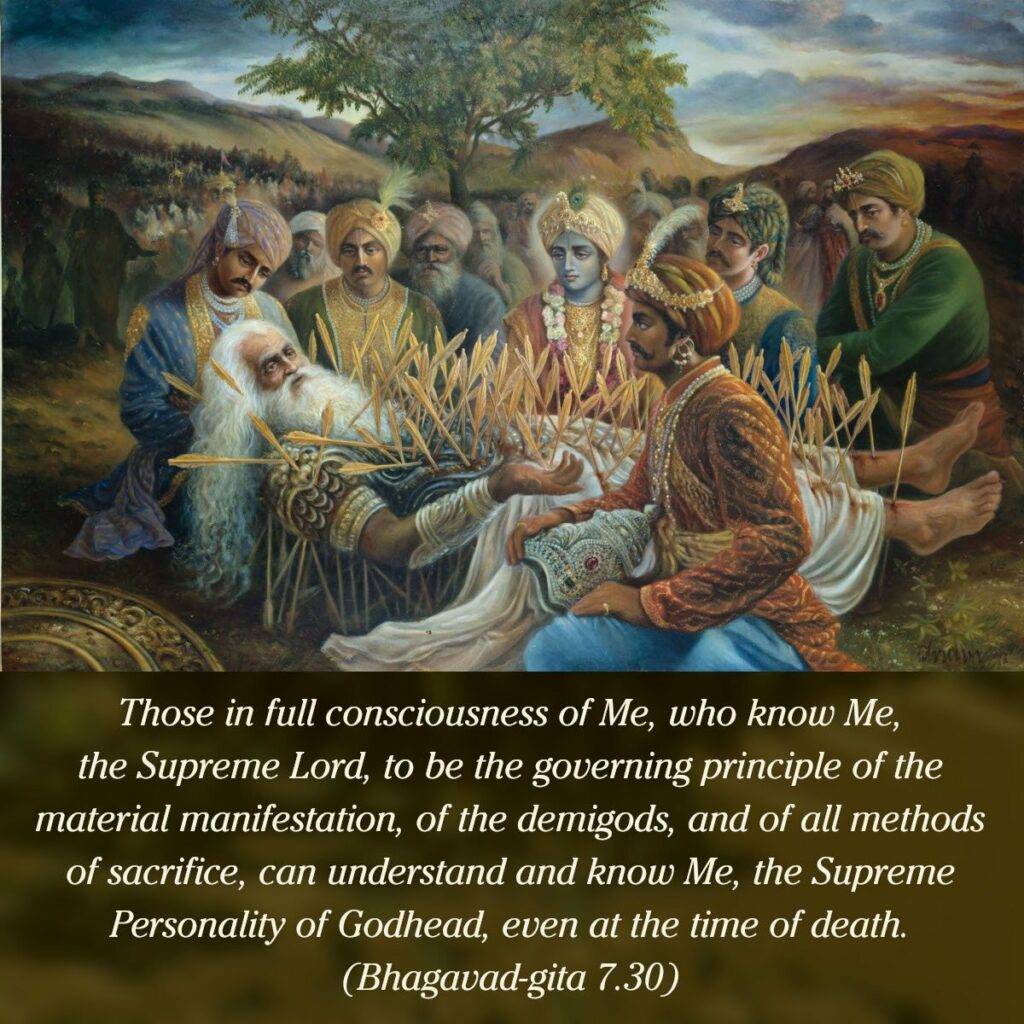साधिभूताधिदैवं मां साधियज्ञं च ये विदु: |
प्रयाणकालेऽपि च मां ते विदुर्युक्तचेतस: || 30||
sādhibhūtādhidaivaṁ māṁ sādhiyajñaṁ cha ye viduḥ
prayāṇa-kāle ’pi cha māṁ te vidur yukta-chetasaḥ
sa-adhibhūta—governing principle of the field of matter; adhidaivam—governing principle of the celestial gods; mām—me; sa-adhiyajñam—governing principle of the Lord of all sacrificial performances; cha—and; ye—who; viduḥ—know; prayāṇa—of death; kāle—at the time; api—even; cha—and; mām—me; te—they; viduḥ—know; yukta-chetasaḥ—in full consciousness of me
Translation:
Those who know Me as the One that underlies all the elements, as the One that underlies all the gods, and as the One that sustains all the sacrifices, will, with steadfast mind, know Me even in the hour of death.
Commentary:
When the seeker attains Brahmajnana, he understands that everything pertaining to the elements, the Gods, and the sacrifices, is all comprehended by Brahman. He retains that experience even at the time of death. All indeed is Brahman and the Self is Brahman. Such knowledge is acquired through a whole life-time of sadhana, and that experience ‘I am Brahman’ is remembered at the moment of death also. If one fills the mind with worldly thoughts, those very thoughts occur at the time of death. If he is merged in the highest realisation, that memory will be powerful at the time of the dissolution of the body.
That is why it is declared here that the man of self-control ‘Yuktachetasa‘ alone can retain that knowledge at the time of death. It does not mean that the memory of the Lord should be held only at the last moment. When man is healthy and strong, when the body is fresh and vigorous, all spiritual sadhana should be done and realisation attained. It is only then that the memory of the blissful experience remains fresh in the mind even at the last moments. As the moment of death is unknown, it follows that spiritual life should be completed when the body is in a fit condition. The Lord gives no concession to the idlers and the negligent. Besides this, the responsibility is placed fully on the personal effort of man for self-realisation. Otherwise, man is likely to live in a fool’s paradise, that some great experience would come to him of its own accord. Every seeker should understand clearly that his own effort will bring down God’s grace to help him towards final realisation.
The terms Adhibhuta, Adhidaiva and Adhiyajna are explained in the next Discourse.
Bhagavad Gita: Chapter 7 🔻 (30 Verses)
